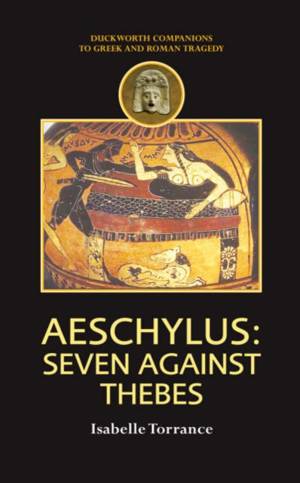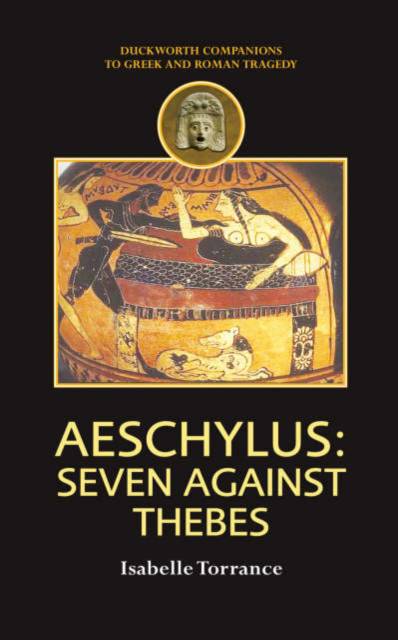
Door een staking bij bpost kan je online bestelling op dit moment iets langer onderweg zijn dan voorzien. Dringend iets nodig? Onze winkels ontvangen jou met open armen!
- Afhalen na 1 uur in een winkel met voorraad
- Gratis thuislevering in België vanaf € 30
- Ruim aanbod met 7 miljoen producten
Door een staking bij bpost kan je online bestelling op dit moment iets langer onderweg zijn dan voorzien. Dringend iets nodig? Onze winkels ontvangen jou met open armen!
- Afhalen na 1 uur in een winkel met voorraad
- Gratis thuislevering in België vanaf € 30
- Ruim aanbod met 7 miljoen producten
Zoeken
Omschrijving
One of our earliest surviving Greek tragedies, Aeschylus' Seven Against Thebes is an extraordinarily rich poetic text. It dramatises the civil war between the sons of Oedipus Polynices - the exile, and Eteocles - reigning king of Thebes. Polynices marches on Thebes to regain his throne along with six other champion warriors and their armies, but the expedition is doomed, and the meaning of Oedipus' enigmatic curse on his sons ultimately becomes clear through their simultaneous fratricide and the extinction of the Theban house. This book places the drama within the context of the connected trilogy of which it was a part. It investigates the play's tensions between city and family and the omnipresence of curse and ritual within the religious and political environment of fifth century Greece. The drama's focus on the world of male warriors, and its stark opposition of the sexes through the female Chorus, is analysed in terms of warrior ideology in epic and Greek understanding of appropriate behaviour. Finally, it explores the complex legacy of the play through its influence on Sophocles and Euripides, and shows how the drama's condemnation of civil war has been exploited as an analogue for events in modern history.
This is part of a series of accessible introductions to ancient tragedies. Each volume discusses the main themes of a play and the central developments in modern criticism, while also addressing the play's historical context and the history of its performance and adaptation.
This is part of a series of accessible introductions to ancient tragedies. Each volume discusses the main themes of a play and the central developments in modern criticism, while also addressing the play's historical context and the history of its performance and adaptation.
Specificaties
Betrokkenen
- Auteur(s):
- Uitgeverij:
Inhoud
- Aantal bladzijden:
- 176
- Taal:
- Engels
- Reeks:
Eigenschappen
- Productcode (EAN):
- 9780715634660
- Verschijningsdatum:
- 2/08/2007
- Uitvoering:
- Paperback
- Formaat:
- Trade paperback (VS)
- Afmetingen:
- 136 mm x 213 mm
- Gewicht:
- 222 g

Alleen bij Standaard Boekhandel
+ 67 punten op je klantenkaart van Standaard Boekhandel
Beoordelingen
We publiceren alleen reviews die voldoen aan de voorwaarden voor reviews. Bekijk onze voorwaarden voor reviews.











